**KEYNOTE SPEAKERS**
Umi Asaka
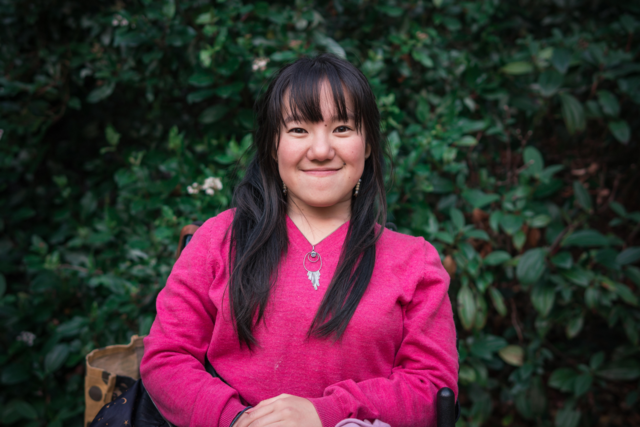
Umi Asaka is a disabled researcher and educator at the Donald Beasley Institute (DBI), a national independent institute for disability rights research and education based in Dunedin, New Zealand. Her primary role at the DBI is to coordinate the Disabled Persons-Led Monitoring of the United Nations Convention on the Rights of Persons with Disabilities (UNCRPD). This project prioritizes the voices of disabled people, their families, whānau, and close supporters, focusing on their experiences with the UNCRPD. She is passionate about using research to transform lived experiences into knowledge as a tool of advocacy.
Originally from Japan, Umi moved to Aotearoa New Zealand at the age of 15. She has been a wheelchair user her entire life and proudly identifies as a second-generation disabled person. Having travelled to 18 countries in her chair, she actively uses her identity and experiences to challenge ableism. While studying social work at Ōtakou Whakaihu Waka - the University of Otago, she received the Diversity and Inclusion Award from the Ministry of Youth Development for her advocacy on campus and beyond.
In addition to her role at the DBI, she serves as a board member for multiple disability organizations and is currently completing a Master of Arts (Human Services) at Ōtakou Whakaihu Waka.
Please CLICK HERE to view and listen to a message from Umi Asaka
Dr. Nathan Bray
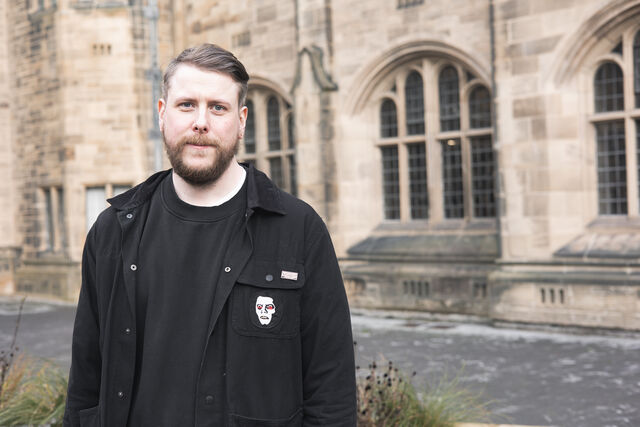
Dr Nathan Bray is a Senior Lecturer in Healthcare Improvement and leads the Academy for Health Equity, Prevention and Wellbeing at Bangor University (North Wales, UK). He has an MSc in Public Health and Health Promotion and a PhD in HealthEconomics. His research focuses on public health and disability, with particularly focus on the intersection between economic evaluation, assistive technology and outcome measurement in marginalised groups.
In 2022 Dr Bray completed an HCRW post-doctoral fellowship which led to development of the MobQoL-7D, a new outcome measure system for mobility aid users. As lead applicant and co-applicant Dr Bray has generated >£7.5million in research grant capture from organisations such as the National Institute for Health Research, European Commission’s Horizon 2020 programme, and NHS England. From 2015 to 2018 Dr Bray co-chaired the International Society of Wheelchair Professionals’ comparative effectiveness research committee. In 2019 Dr Bray led the EMPoWER project, a large scale evidence synthesis to determine the benefits of early powered mobility for very young children. His research has been cited in policy documents published by WHO, UN and The Health Foundation, and he contributed to WHO’s Global Report on Effective Access to Assistive Technology (GReAT) international consultation.
Riley Saban
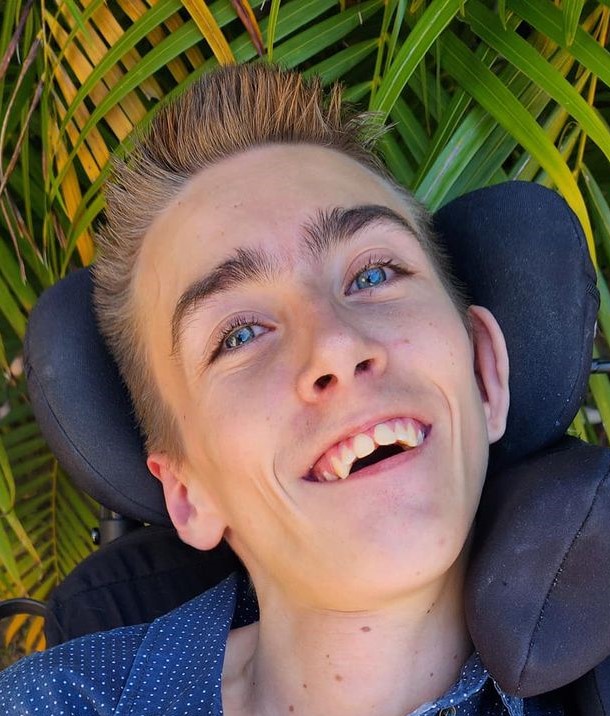
Riley is an accomplished individual with Cerebral Palsy who holds a Certificate IIII in Assistive Technology Mentorship. He works as an Assistive Technology Adviser and served on the board for ARATA at the 2024 Australian Assistive Technology Conference. Additionally, Riley is the co-founder of PolySpine, a modular seating support system designed for individuals with physical disabilities.
As a seasoned speaker, Riley delivers engaging talks and workshops on assistive technology to various organisations and schools, which has included Google staff. Riley's presentations passionately advocate for inclusion and equality in society. He also starred in a two-part documentary series that highlighted his collaboration with Dr. Jordan Nguyen, a biomedical engineer, on EOG technology. In the series, Riley successfully drove a buggy using brain wave activity, a feat that achieved critical acclaim and was screened at several film festivals.
Throughout his life, Riley has been recognized with numerous prestigious awards, including the Young Third Sector Award, a Good Designs Award for PolySpine, and the Young Citizen of the Year Award for his region on Australia Day 2022.Through his work, Riley has greatly influenced the lives of those around him, motivating and encouraging others to make a positive difference in society. He is also a member of the CP Active Young Changemakers, a diverse community dedicated to making Australia a more inclusive place for people with Cerebral palsy and other disabilities. As part of a dynamic team, Riley helps create pathways and amplify the voices of young people with Cerebral Palsy. Riley now works part-time for CPActive, serving as a member of the steering committee.
Alongside his advocacy and work with assistive technology, Riley enjoys surfing, making music, playing chess, and spending quality time with family and friends. He embraces every opportunity to live life to the fullest, staying connected to the people and passions that bring him joy.
Please CLICK HERE to view and listen to a message from Riley Saban
**INVITED SPEAKERS**
Dr. Jackie Casey
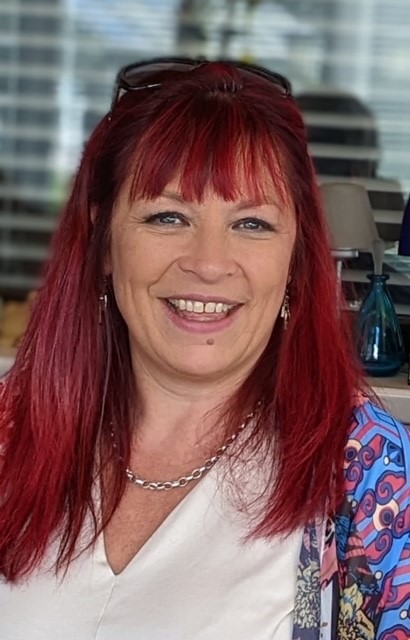
Dr. Jackie Casey is an occupational therapist who has worked as a specialised seating clinician, university lecturer and in industry across the UK, Ireland and the USA. She currently holds a joint appointment with Ulster University and Southern Health & Social Care Trust, continuing her own research, and supporting clinicians to engage in and to embed a culture of clinically relevant research. She is passionate about the importance of posture, positioning, seating and wheelchair mobility to enabling the participation in everyday life for individuals with mobility and/or postural limitations.
Her research explored the impact of caring for a child who is a wheelchair user, from parent and teachers’ perspectives; use of modified toy cars to enable children to socially participate, and evidence for 24-hour postural management. Her doctoral research investigated postural asymmetries and mobility of children with cerebral palsy; and she has over 40 publications including in peer reviewed journals.
Please CLICK HERE to view and listen to a message from Dr Jackie Casey
Lisbeth Nilsson
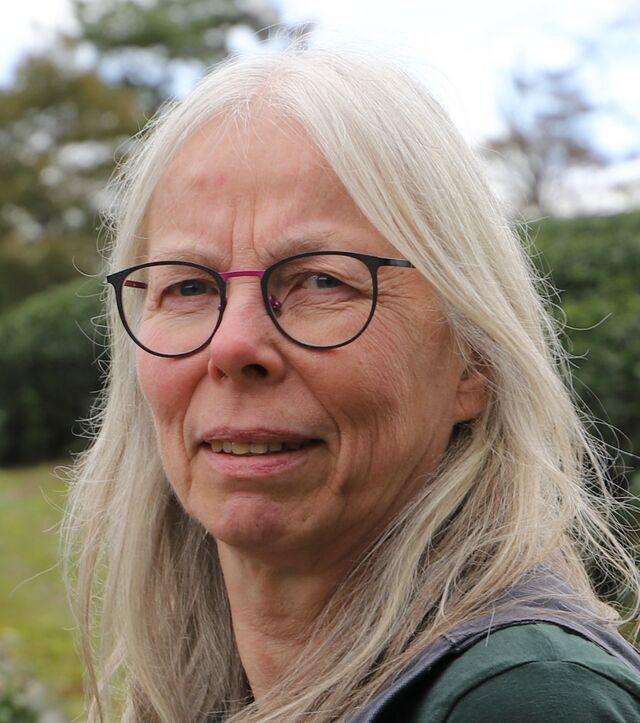
PhD, Reg. Occupational Therapist
Associated to Lund University, Sweden
- Email: or
- Homepage: www.lisbethnilsson.se/en
- IAACD knowledge hub: https://iaacd.net/2024/12/23/the-alp-tool/
- ResearchGate profile: https://www.researchgate.net/profile/Lisbeth-Nilsson/research
- LinkedIn profile: https://www.linkedin.com/in/lisbeth-nilsson-1a274525/
- Researcher ID: https://orcid.org/0000-0001-5988-3192
Lisbeth Nilsson is a PhD, Occupational Therapist and specialist, associated to Department of Health Sciences, Lund University, Sweden. She developed the Driving to Learn intervention for people with profound cognitive disabilities (1996-2007). She and Josephine Durkin, UK, collaborated on developing the Assessment of Powered mobility use (ALP) (2009-2016). Her special interests are how infants, children and adults with cognitive disabilities learn how to use a variety of tools, and how to assess and facilitate the learning process. Her current focus is explaining how to apply the universal ALP tool for assessment and facilitation of learning in a variety of tool-use interventions. Her ongoing research collaborations nationally and internationally involves OTs, PTs and other rehabilitation professionals.
Lisa Kenyon
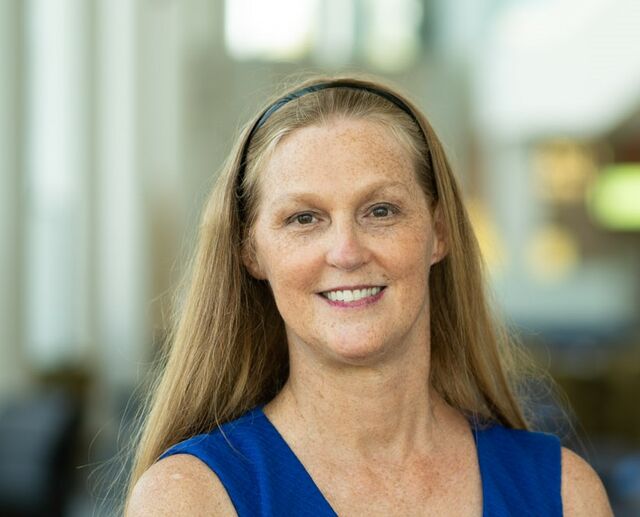
PT, DPT, PhD, PCS
Dr. Kenyon is a Professor in the Department of Physical Therapy and Athletic Training at Grand Valley State University in Grand Rapids, Michigan, USA. She heads the Grand Valley Power Mobility Project; an inter-professional project providing power mobility training and use for children across the full continuum of pediatric power mobility learner groups. Dr. Kenyon has received funding from the National Institutes of Health, the American Academy for Cerebral Palsy and Developmental Medicine, and the Academy of Pediatric Physical Therapy. She has published numerous peer-reviewed articles and book chapters, and presents nationally/internationally, on topics related to pediatric power mobility and pediatric physical therapist practice. Dr. Kenyon currently serves on the Wheelchair Skills Program Advisory Board and on the American Board of Physical Therapy Specialties.
Paula Rushton
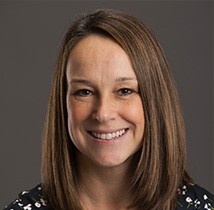
Paula Rushton is an Associate Professor and Director in the School of Occupational Therapy at Dalhousie University. She completed her Master of Clinical Science in Occupational Therapy at the University of Western Ontario (1999), PhD in Rehabilitation Sciences at the University of British Columbia (2010) and postdoctoral training at the Université de Montréal in Biomedical Sciences (2014). Her research is focused on measurement, intervention, knowledge translation, and education related to improving the wheeled mobility of children, adults, and older adults through an improved wheelchair service provision process. From the measurement, intervention and knowledge translation perspective, Rushton’s interest lies in the domains of wheelchair skills and wheelchair confidence. From the education perspective, Rushton has been working with the International Society of Wheelchair Professionals to enhance wheelchair content in health care professional university curricula globally.
Beth Sheenan
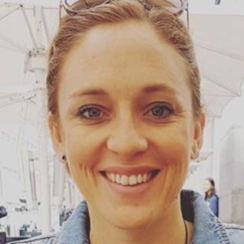
Beth Sheehan is one of the Programme Managers for the International Society of Wheelchair Professionals (ISWP) and has over 20 years’ experience as an exercise physiologist. Beth has had a wide variety of opportunities working in private practice in Australia and Scotland, professional associations and academia as well as NGOs in Malawi.
Over the last 14 years Beth has developed her passion in the field of prosthetic, orthotics and assistive technology working with NGOs and as a consultant in a wide variety of countries helping to build capacity of rehabilitation professionals to ensure access for service users. Beth’s passion for improving capacity also has led her to a variety of roles that also support service users and the development of rehabilitation professionals.
In her current role as ISWP’s Programme Manager, Beth focuses on advocacy and increasing awareness and capacity for wheelchair professionals and wheelchair users. ISWP's goal is to have 10000 certified wheelchairs worldwide and ISWP believes that this can be done through strengthening the global wheelchair community through meaningful partnerships.
